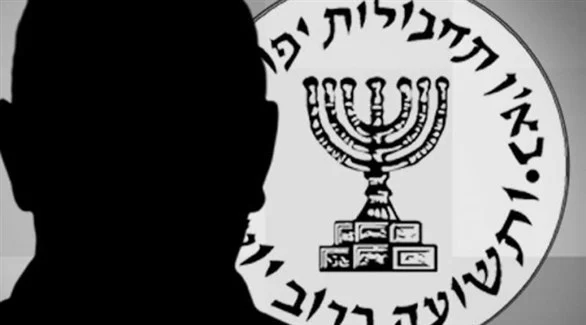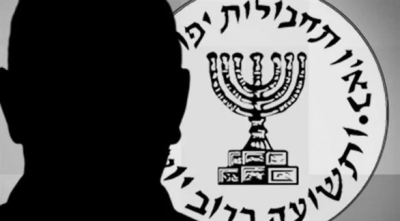It has been confirmed that the Israeli Mossad assassinated Lebanese money changer Muhammad Ibrahim Sirour (57 years old) after luring him to a villa in the Beit Meri area on Thursday, April 4th of this month. Investigations have established the security fingerprints of the Israeli intelligence, and security forces have obtained images of several individuals involved in the operation, identifying some who collaborated logistically, including Syrians and Lebanese, though they may not necessarily know the details of the operation. Security estimates suggest that the assassination group left Lebanon within 24 hours of executing the operation.
Judicial sources revealed to "Al-Akhbar" that the operation lasted 40 minutes from Sirour's entry into the villa until the perpetrators exited, indicating that the goal was to obtain his mobile phone and password while interrogating him under torture before killing him. Investigators suspect that Israeli intelligence believes Sirour was responsible for financial transfers between Iran's Islamic Revolutionary Guard and resistance movements in Palestine. Autopsy results showed Sirour was struck by nine bullets in various parts of his body, including injuries to his hands and feet, indicating that those who interrogated him fired at his extremities to compel him to talk and extract information before executing him.
The assailants placed clothing, gloves, and two "Glock-19" pistols with silencers in containers filled with water and cleaning powder to erase genetic fingerprints. After cleaning the crime scene of fingerprints, they scattered $6,500 over the body before departing, resembling a "message" intended to affirm that the crime was not motivated by theft but rather part of the security war between Israel and the resistance axis.
Sirour, along with three others, has been on the U.S. Treasury's sanctions list since August 2019 for allegedly facilitating financial transfers from Iran and providing financial, material, or technological support to “Izz ad-Din al-Qassam Brigades,” Hamas' military wing. Since October 7th, Israeli intelligence has eliminated around twenty money changers within the Gaza Strip and Turkish security has uncovered Mossad cells active in gathering information on money changers transferring funds to Gaza.
Investigations revealed that Sirour received a call recently from a woman claiming her name was Zainab Hamoud, who was awaiting a money transfer from Iraq and asked him to deliver it to her home in Beit Meri, pretending she had just undergone surgery. According to sources close to the family, the victim was initially suspicious about the call and how Hamoud obtained his phone number, and “he may have questioned her about it later, and she answered in a way that alleviated his doubts.”
The sources reported that Hamoud had contacted Sirour on one occasion, and when his daughter answered, the caller hung up, only to call back again to confirm if the number belonged to Sirour, to which his daughter affirmed that it did and that her father was not home. Notably, the victim had, in the days leading up to his murder, installed a surveillance camera near his house to protect his motorcycle from theft, although it remains uncertain if this was coincidental or a response to specific threats he had received or suspicions he harbored.
On Wednesday, April 3rd, Sirour went with his nephew to the Beit Meri area to deliver the money transfer. Upon arrival, he called Hamoud, who asked him to come inside. When he informed her that he was with his nephew, she said she would meet him at the villa door, which indeed happened. The victim’s nephew told investigators that Hamoud met them at the villa door and spoke with a "Baalbek accent," making it clear that she was not alone. The next day, Sirour received a call from Hamoud informing him of another money transfer that he needed to deliver to her. He indeed went alone to Beit Meri this time.
Investigations showed that the victim's phone and the perpetrators' phones were turned off immediately after the latter's arrival at the villa, while sources denied rumors that Sirour used a new phone and number. Investigators estimate that the Mossad operatives aimed to obtain the money changer's phone, password, and details about individuals to whom he transferred funds.
The investigations revealed that the group rented the villa in Beit Meri for a year for $48,000 (four thousand dollars monthly), through a brokerage office whose owner stated that the "tenants spoke with a Syrian accent," with no apparent connection between the villa's owners and the matter. The group also used a car they purchased at an inflated price, four thousand dollars more than its value. On one occasion, the “tenants” contacted an electronics engineer to inquire about installing a camera and GPS device in the car. The engineer informed investigators that he met a woman "speaking with a Lebanese accent," and that the inquiry was only about the installation without him being tasked with any work.
Sources suggested that investigations may lead to the arrest of those who collaborated with the killers, who left Lebanon immediately after executing the operation. This was aided by a delay of several days in discovering the crime, making it nearly impossible to reach them. Although Sirour's family notified the authorities of his disappearance since Thursday (April 4), his body was not discovered until the following Tuesday (April 9), despite security agencies pinpointing the location where his phone was turned off in Beit Meri, and surveillance cameras showing that he rode his motorcycle to the villa, from which he never exited. However, the judiciary did not provide a judicial order to enter the villa until Tuesday.
Investigators stated that coordination is ongoing with General Security to identify the perpetrators, and a review of the profiles of travelers who left during the period following the operation is being conducted, without ruling out the possibility of their departure by sea. The sources recalled the assassination attempt on Hamas military leader Muhammad Hamdan in Sidon on December 14, 2018, and the assassination of Izz ad-Din al-Qassam Brigades leader Mahmoud al-Mabhouh in a Dubai hotel on January 19, 2010. They noted that the Mossad relies on its own operatives for execution and on agents for surveillance, reconnaissance, and logistics, "and these individuals can be reached, although the seven-day delay before the crime's discovery will complicate matters significantly."




